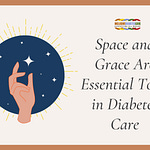Many people have heard about diabetes, but the real memories come from a family member or a friend. How your clients learn about diabetes often impacts when or if they will receive more education on the topic. It is essential to discuss the four critical times clients need to see you. You want to help people with elevated blood sugar and shift the conversation from unsustainable changes to a balanced approach to diabetes care. But where would you begin?
In this program, you will learn more about when and why people with diabetes need education, support, and guidance. My name is Megrette Fletcher, MEd, RD, CDCES and I am delighted that you are joining me for this course. I have been in diabetes care since 1994, and a lot has changed, including how our clients learn about diabetes.
Increasing Your Referrals: Communicating the four critical times clients need to see you is a 1-hour program that explores the four essential times clients need to meet with diabetes professionals.
Here is the program outline
1-10 minutes: Understanding the overall utilization of diabetes education
11-15 minutes: What are the four critical times to seek diabetes education
21-30 minutes: After an individual or family member is first diagnosed
31-40 minutes: Yearly check-ins and follow-up and Whenever a new challenge is presented, such as financial or emotional distress or medication issues
41-50 minutes: Changes in a person's healthcare: physician, insurance, moving to a new location, or experiencing age-related issues.
51-60 minutes: Case study and Q&A
Performance Indicators
8.2.1 Engages in educational activities to maintain knowledge and to obtain new knowledge of diseases and clinical conditions.
9.3.5 Uses a variety of strategies to deliver education.
9.6.8 Develop counseling or coaching goals in collaboration with clients.
CPE: From Commission of Dietetic Registration
1 CPE
Course number 176035
Valid thru 3/28/23-3/28/26
Level 2
Four critical times, people with diabetes need you!
Diabetes is a condition that many people know about, even if only a little. They might have learned about it from a family member or a friend. Maybe they read about it in the newspaper or learned about it in school. How your clients learn about diabetes often impacts when or whether they will receive more education on the topic.
References:
AADCE. “Adces7 Self-Care Behaviors- the Framework for Optimal Self-Management.” ADCES, https://www.diabeteseducator.org/practice/practice-tools/app-resources/the-aade7-self-care-behaviors-the-framework-for-optimal-self-management.
Strawbridge LM, Lloyd JT, Meadow A, Riley GF, Howell BL. Use of Medicare’s diabetes self-management training benefit. Health Educ Behav. 2015;42(4):530-538.
Williams DR, Lawrence JA, Davis BA, Vu C. Understanding how discrimination can affect health. Health Serv Res. 2019 Dec;54 Suppl 2(Suppl 2):1374-1388. Doi: 10.1111/1475-6773.13222. Epub 2019 Oct 29. PMID: 31663121; PMCID: PMC6864381.












